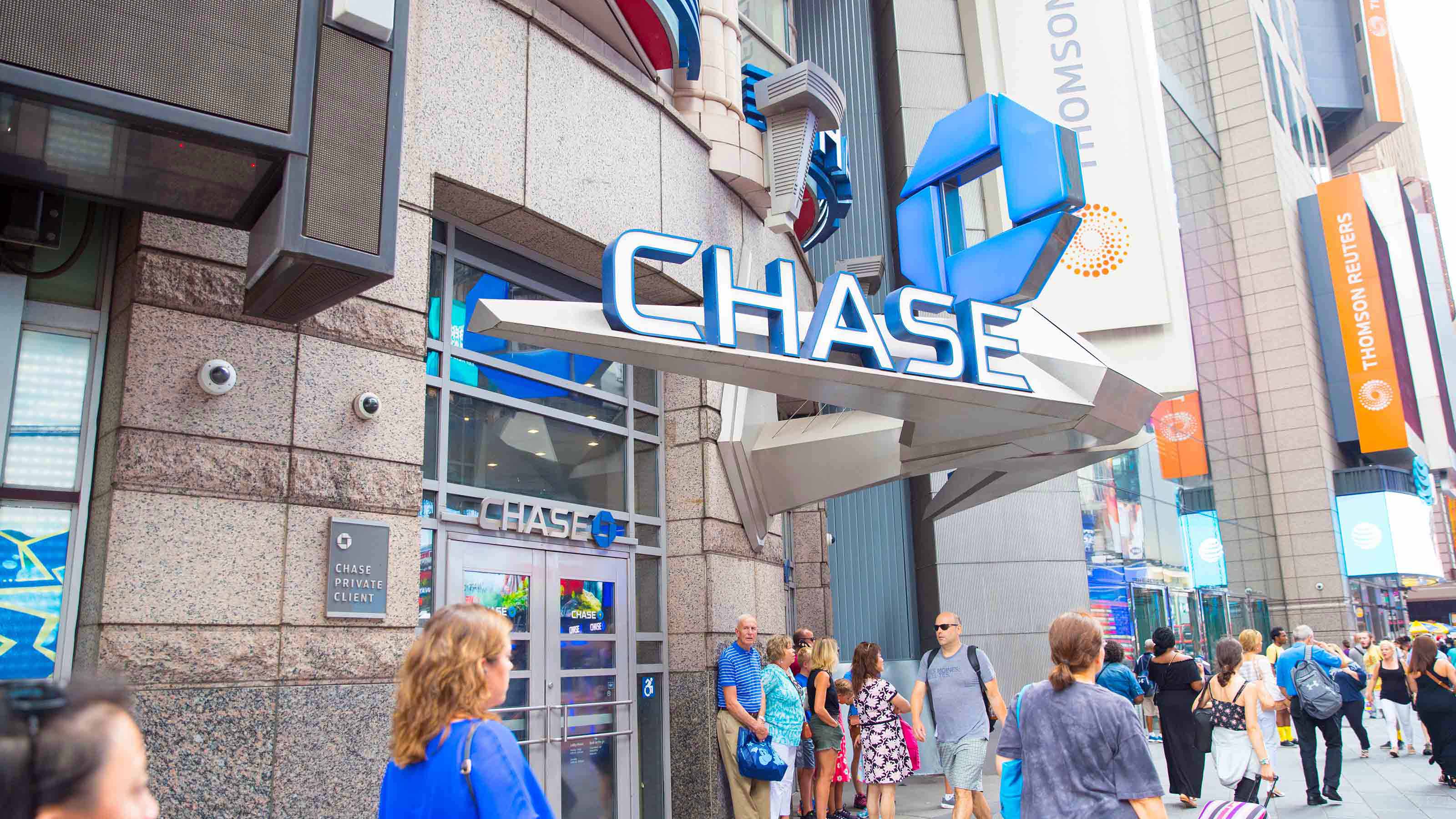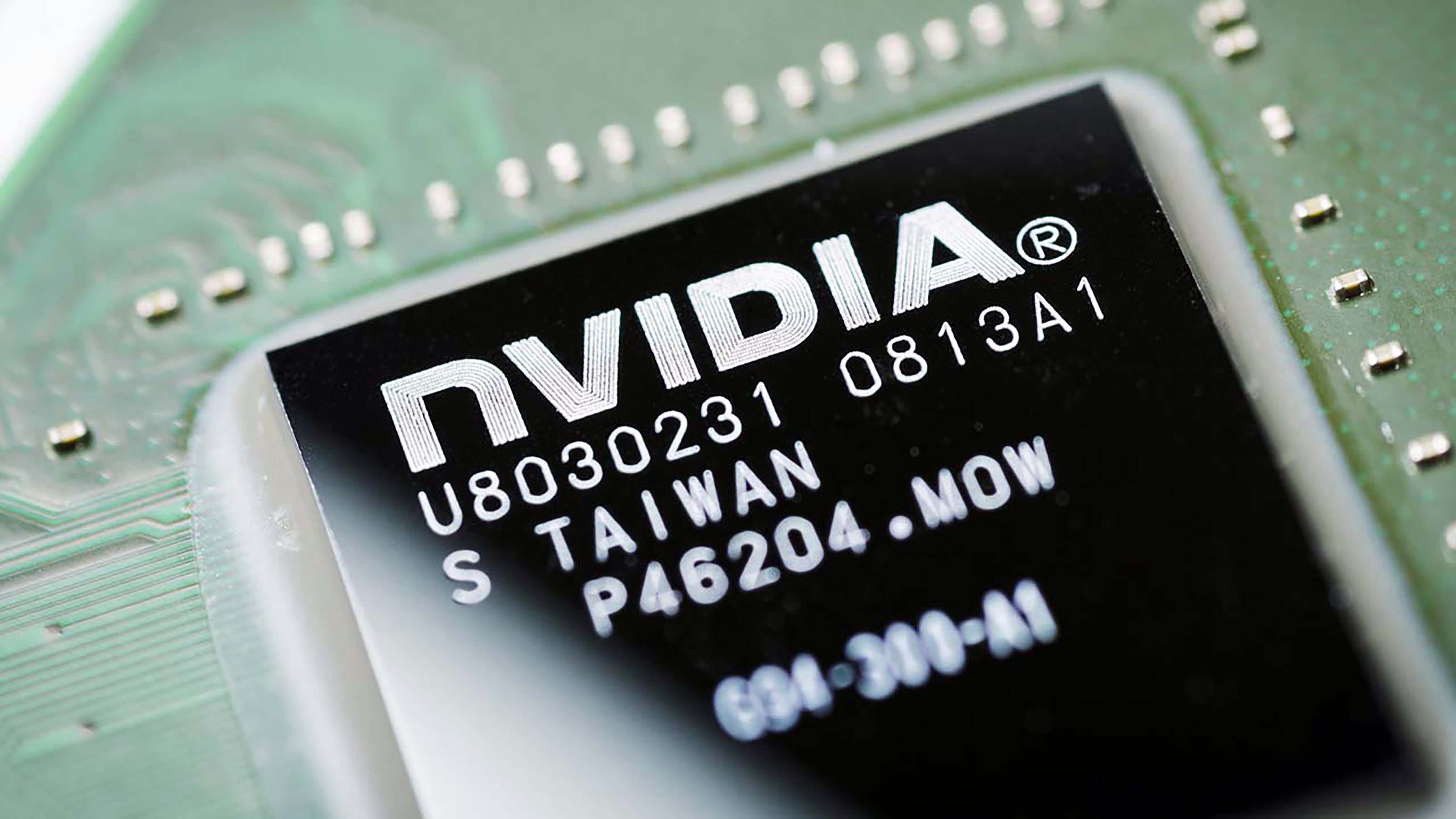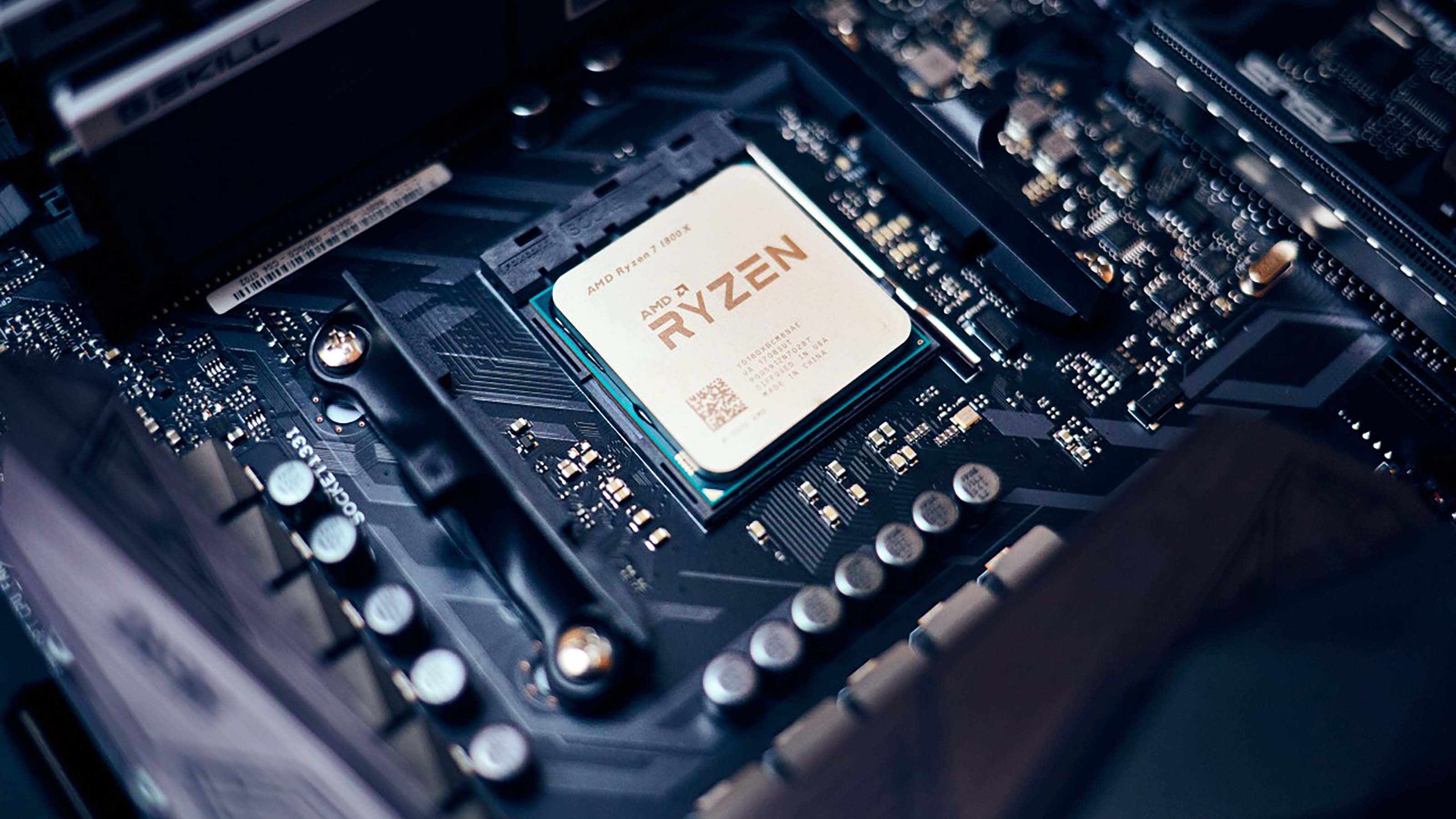8 Top Cryptocurrency Stocks for the Next Bitcoin Boom
If you want exposure to digital assets, your options are growing. Here's a list of cryptocurrency stocks to dip your toes into this expanding technology.


Profit and prosper with the best of Kiplinger's advice on investing, taxes, retirement, personal finance and much more. Delivered daily. Enter your email in the box and click Sign Me Up.
You are now subscribed
Your newsletter sign-up was successful
Want to add more newsletters?

Delivered daily
Kiplinger Today
Profit and prosper with the best of Kiplinger's advice on investing, taxes, retirement, personal finance and much more delivered daily. Smart money moves start here.

Sent five days a week
Kiplinger A Step Ahead
Get practical help to make better financial decisions in your everyday life, from spending to savings on top deals.

Delivered daily
Kiplinger Closing Bell
Get today's biggest financial and investing headlines delivered to your inbox every day the U.S. stock market is open.

Sent twice a week
Kiplinger Adviser Intel
Financial pros across the country share best practices and fresh tactics to preserve and grow your wealth.

Delivered weekly
Kiplinger Tax Tips
Trim your federal and state tax bills with practical tax-planning and tax-cutting strategies.

Sent twice a week
Kiplinger Retirement Tips
Your twice-a-week guide to planning and enjoying a financially secure and richly rewarding retirement

Sent bimonthly.
Kiplinger Adviser Angle
Insights for advisers, wealth managers and other financial professionals.

Sent twice a week
Kiplinger Investing Weekly
Your twice-a-week roundup of promising stocks, funds, companies and industries you should consider, ones you should avoid, and why.

Sent weekly for six weeks
Kiplinger Invest for Retirement
Your step-by-step six-part series on how to invest for retirement, from devising a successful strategy to exactly which investments to choose.
Bitcoin recently suffered one of its biggest monthly drops on record in May. The price of the digital asset crashed all the way from a mid-April high over $64,000, to $30,000 by late May – dragging many cryptocurrencies and cryptocurrency stocks down with it. That was followed by a quick rebound to $40,000, and since then, prices have been stuck in the $30,000-$40,000 range.
The volatility in Bitcoin – and by proxy, cryptocurrency stocks – this year has rekindled excitement in retail investors in a way it hasn't since the digital coin last peaked in 2017.
Professional investors, billionaires and even publicly traded companies have maintained a keen interest in cryptos, too. This involvement in both Bitcoin, other cryptocurrencies and blockchain – the secure authentication technology behind digital currencies – are already showing up as a new source of revenue for many companies in mid-2021.
How?
It's partly thanks to the pandemic. COVID-19 helped accelerate a number of digital reforms in companies large and small. "We've seen two years' worth of digital transformation in two months," Microsoft (MSFT) CEO Satya Nadella stated last April when the pandemic was running rampant.
Cryptocurrencies and blockchain have been part of that transformation. The companies utilizing these technologies run the gamut, from traditional financial powerhouses looking to develop their own cryptos, to fintech firms looking to add Bitcoin functionality to their products, to other companies using blockchain to improve their operations.
The past few months have seen an explosion of companies offering Bitcoin as payments, or even the rise of companies holding the cryptocurrency on their balance sheet rather than cash. Since Bitcoin isn't recognized by the government as a cash equivalent, the position has to be repeatedly marked-to-market, causing companies to show big profits or losses depending on the digital currency's price swings.
Bitcoin might not be right for many investors. In addition to not being able to buy it directly through many brokerage accounts yet, it might simply be too volatile for some. "Cryptocurrency investing today is a bit like living in the early days of the 1850s gold rush, which involved more speculating than investing," says John LaForge, Head of Real Asset Strategy at Wells Fargo Investment Institute. The answer? Stocks that leverage digital currencies, but also boast vibrant businesses that would make them worth buying anyway.
Here are seven cryptocurrency stocks (and one fund) that can help traditional investors get at least exposure to this asset class. They might not offer pure exposure to these technologies, but by embracing this growing space, these crypto stocks look poised to deliver additional growth in 2021 and beyond.
Data is as of June 23. Earnings growth rate, profit margin and return on equity provided by Yahoo! Finance.

PayPal Holdings
- Market value: $333.5 billion
- Quarterly earnings growth rate (year-over-year): 1,206%
- Profit margin: 22.8%
- Return on equity – trailing 12 months (TTM): 29.4%
PayPal Holdings (PYPL, $288.12) announced in October a service that would allow users to hold Bitcoin, as well as the Ethereum, Bitcoin Cash and Litecoin cryptocurrencies.
Before the end of the year, Mizuho Securities survey of 380 users showed that, within roughly one month, 17% had already used PayPal to buy or sell the cryptocurrency. Investment firm and hedge fund Pantera Capital wrote in a letter to shareholders that "PayPal and (Square's Cash App) are already buying more than 100% of all newly-issued bitcoins."
"Crypto functionality is now part of Top 5 finance apps," say Piper Sandler analysts Christopher Donat and Crispin Love, who rate PYPL at Buy.
If that 17% figure actually translates across all 392 million PayPal users worldwide, that indicates nearly 67 million people have started holding some amount of wealth in cryptocurrency.
That's a massive figure that only makes Bitcoin more useful as a digital store of wealth thanks to the "network effect" – a concept PayPal understands well from when it was part of former parent company eBay (EBAY).
Allowing users to buy and sell Bitcoin on its platform naturally opens up a new source of revenue for the company. Their business model of collecting a small "toll" for every financial transaction processed should help PYPL expand its bottom line when it begins to apply its fees to crypto transactions in 2021.
In the first quarter of this year, PayPal saw revenue rise 29% year-over-year, and total payment volume jumped 50%. There were 14.5 million new accounts formed, and payment volume was $20 billion higher than expected. The push for incorporating cryptocurrencies was a big reason why.
"We've got a tremendous amount of really great results going on tactically with our crypto efforts," stated CEO Dan Schulman.
As far as cryptocurrency stocks go, Wall Street analysts are upbeat on this one. They collectively believe PayPal will average 24.1% earnings growth annually over the next three to five years. That's reflected in a consensus Buy rating, according to S&P Global Market Intelligence.

Square
- Market value: $108.7 billion
- Quarterly earnings growth rate: N/A
- Profit margin: 2.7%
- Return on equity: 17.4%
Square (SQ, $238.70), another payments company that's known for its card-reading hardware used by small businesses, also made an announcement regarding Bitcoin in October. Namely, that it bought 4,709 bitcoins for $50 million – an investment that represented 1% of total assets as of the end of Q2 2020.
"We believe that Bitcoin has the potential to be a more ubiquitous currency in the future," Chief Financial Officer Amrita Ahuja said in a release. "As it grows in adoption, we intend to learn and participate in a disciplined way. For a company that is building products based on a more inclusive future, this investment is a step on that journey."
However, Square was already a leader among cryptocurrency stocks, allowing people to use its Cash App to buy, store, withdraw and deposit bitcoins. In fact, the company recently added another crypto feature: Auto Invest, which "allows for dollar-cost averaging from recurring daily or weekly purchases of bitcoin or stocks."
Piper Sandler's Donat and Love note that "we believe this (cryptocurrency) functionality might create a lead for SQ and PYPL that is difficult for other financial services firms to catch."
During the most recent quarter, SQ's Cash App generated $3.5 billion in bitcoin-related revenue, resulting in $75 million in gross profit.
That's a nearly 11-fold rise in revenue year-over-year, and some of the fastest growth numbers the company has reported.
But they're not in a rush. As Square management says, "... our role is to facilitate customers' access to Bitcoin. When customers buy Bitcoin through Cash App, we only apply a small margin to the market cost of bitcoin, which tends to be volatile and outside our control."
The company also allocated another $170 million of its assets to Bitcoin in the first quarter.
The direct investment in bitcoins suggests that cryptocurrencies might play an even larger role for Square and its balance sheet in the future.

JPMorgan Chase
- Market value: $457.5 billion
- Quarterly earnings growth rate: 399.1%
- Profit margin: 34.2%
- Return on equity: 15.0%
During Bitcoin's massive run in 2017, JPMorgan Chase (JPM, $151.12) CEO Jamie Dimon called the asset class a "fraud," claiming it is "worse than tulip bulbs," referring to the Dutch tulip bubble burst in the 1600s.
He also said any JPM trader who traded the cryptocurrency would be fired.
Time has marched on, and Dimon still said late last year that Bitcoin is "not my cup of tea." But he is supportive of blockchain technology, and in fact, the bank has created its own cryptocurrency: JPM Coin.
The bank is first looking at a blockchain-run system that can reduce the number of parties and time needed to verify global payments. Currently, some payments can take weeks; better verification technology could reduce that to hours.
Of course, this is one play that might take some time to pan out.
"Trying to find a blockchain investment that will outperform Bitcoin is not easy," says Bryan Courchesne, founder of Digital Asset Investment Management. "Blockchain ventures are highly risky where less than one of a hundred will result in a positive return."
In the meantime, as prices were peaking in April, JPM joined the growing number of old-school banks in climbing on the cryptocurrency craze. The house of Morgan is allowing their clients exposure to cryptocurrencies with an actively-managed Bitcoin Fund, possibly launching as soon as this summer.
Investors willing to wait on one of the most unlikely of cryptocurrency stocks can collect a 2.4% dividend yield on JPM shares, which the analyst community currently says are a Buy.

Nvidia
- Market value: $474.9 billion
- Quarterly earnings growth rate: 108.5%
- Profit margin: 27.7%
- Return on equity: 33.4%
Cryptocurrencies are generated from solving complex algorithms, rewarding those with the hardware to speedily get the job done. Much like gold miners panning for physical gold, with the right equipment, you can grab a bigger share with better tools.
That's part of why Nvidia (NVDA, $762.29) enjoyed a surge along rocketing Bitcoin prices in 2017. As mining bitcoins became more lucrative, it created a rising demand for the company's high-powered processors.
In 2021, while Bitcoin has surpassed 2017 prices and then some, the mania is rising but isn't quite the same ... yet.
"While we have not encountered any signs that increased interest mining is creating additional demand for GPUs, the recent surge in crypto could yield another potential near-term demand driver for makers of graphics chips and is a situation we are monitoring," says Wedbush analyst Brad Gastwirth.
Nonetheless, Nvidia is enjoying some pickup, and the company released new processors in February specifically for use in cryptocurrency mining.
NVDA's GeForce RTX 3060 processor can generate an estimated profit of $3 per day – one of the highest levels in the industry – for miners of Ethereum, another popular cryptocurrency. That might not sound like much. But cryptocurrency mining is a major operation often involving thousands of such processors linked together.
In its fiscal first quarter, Nvidia generated $155 million in revenue from crypto mining cards, and expects that to rise to $400 million in the second quarter. That's as the company's core business in gaming processors continues to grow rapidly as well, up 106% from last year.
Nvidia is hardly the purest of cryptocurrency stocks. But in any gold rush, it pays to be the guy selling picks and shovels. Sweeter fortunes for Bitcoin and other cryptocurrencies should help boost NVDA's bottom line.

Advanced Micro Devices
- Market value: $101.8 billion
- Quarterly earnings growth rate: 242.6%
- Profit margin: 25.2%
- Return on equity: 60.6%
Another "picks and shovels" play in the digital gold rush, Advanced Micro Devices (AMD, $83.82) has stalled a bit in 2021 following its red-hot run last year. After peaking near $100 in mid-January, shares have since pulled back to trade in the mid-$80s range.
Even with that pullback, analysts' project a long-term earnings growth rate of 27.4%. This is more than robust enough to drive additional gains in the cryptocurrency stock.
AMD, like Nvidia, develops high-performance processors used in a wide array of products, but primarily computers and servers. And like NVDA, Advanced Micro Devices also can benefit from any gains in cryptocurrency mining demand.
In the first quarter of 2021, the company reported a 93% year-over-year jump in revenue. With strong demand for computer hardware for all types of reasons, the company was unable to specifically point to how much of the increase came from that source alone.
But that just underscores how Advanced Micro Devices has plenty of other things going for it. For instance, in late October AMD announced that it would acquire rival Xilinx (XLNX). While shares initially fell on the news, a push since then to all-time highs reflects optimism that AMD will benefit from the M&A move. Shareholders approved the merger in April.
Most analysts tracked by S&P Global Market Intelligence are optimistic toward AMD stock, with 16 calling it a Strong Buy and seven saying Buy. Rounding things out, 13 maintain a Hold rating on the shares, one says Sell and two believe it's a Strong Sell.

MicroStrategy
- Market value: $5.4 billion
- Quarterly earnings growth rate: N/A
- Profit margin: -24.0%
- Return on equity: -28.6%
MicroStrategy (MSTR, $553.00) founder Michael Saylor is one of the longest-tenured founders in tech, having started the company at the age of 24. The data analytics firm has been a somewhat small player in a tech world dominated by trillion-dollar names.
But shares have surged more than 370% in the past year thanks to the company's aggressive strategy of replacing the cash on its balance sheet with Bitcoin.
MSTR has spent nearly $3 billion buying the cryptocurrency, even taking out convertible debt to do so. And last August, it made a splash as one of the first companies to make such a big, public move into cryptocurrencies
With an average cost around $26,000, MicroStrategy's position is still in the money amid a big pullback for cryptocurrencies.
Saylor is quick to jump on Twitter (TWTR) to announce when the company buys the cryptocurrency's periodic dips, including a simple "I'm not selling," as the price pulled back 50% in May.
While its Bitcoin holdings have made the company far more valuable in recent months, it's also transferred the digital currency's volatility to shares. The company's convertible debt makes this an interesting and somewhat leveraged way to play Bitcoin, with a smallish, thriving tech company behind it as well.
But MicroStrategy is moving full steam ahead. The company's board of directors are moving to be paid in the digital asset. And the Bitcoin section on the company's website feeds directly to the Saylor-run website hope.com, which contains interviews, podcasts and other resources regarding the cryptocurrency.
MSTR is certainly among the cryptocurrency stocks to watch going forward.

Coinbase Global
- Market value: $59.2 billion
- Quarterly earnings growth rate: 2,313%
- Profit margin: 36.8%
- Return on equity: 54.2%
Coinbase Global (COIN, $226.01) has had a rough ride since going public via a direct listing in the second quarter. COIN was given a reference price of $250 per share, before opening at $381 on April 14. The shares rallied to nearly $430, but closed the session below $329. These struggles on the charts have continued, with COIN down about 31% from its close that day.
Off the charts, the company's business model is a simple one. It's a brokerage firm that connects buyers and sellers of major cryptocurrencies, and collects fees for each trade made.
The recent drop in Bitcoin has brought out the "buy the dip" crowd, which likely means more trading volume, and therefore more revenue and profits for COIN. With Coinbase already profitable on the day it began trading, it's far ahead of many other companies that have gone public – whether through a direct listing or an initial public offering (IPO) – in the past year.
It's no surprise that analysts are picking up on this fact, as well. Goldman Sachs (GS) and J.P. Morgan Securities are bullish on the shares. In late May, the company also announced Coinbase Prime, designed for institutional investors.
"It opens the door for institutions clustering more and more of their services through us," says Brett Tejpaul, Head of Institutional Sales, Trading, Custody and Prime Services at COIN.
The unit will tie together trading, data analytics and custody services. Unlike traditional brokerages, where institutions lead, digital assets are still driven by retail investors. This is a potentially huge market by volume.
And as far as cryptocurrency stocks are concerned, this one's story is likely just beginning.

Grayscale Bitcoin Trust
- Assets under management: $21.9 billion
- Expenses: 2.0%, or $200 for every $10,000 invested
"Bitcoin should be the core position of everyone's digital asset/blockchain allocation," says Digital Asset Investment Management's Courchesne. "It's the only truly decentralized fixed supply asset that is global and will only get more scarce."
But the methods for investors who want to do so via a traditional brokerage account are extremely limited. In fact, there's really only one way to get direct Bitcoin exposure. And it has its flaws.
The Grayscale Bitcoin Trust (GBTC, $27.79) might sound like an exchange-traded fund (ETF), but technically, it isn't.
It works similarly to one. It's modeled on trusts such as the SPDR Gold Trust (GLD), which represent real, physical holdings of the underlying commodity. You can go into your brokerage account and buy shares of GBTC just like you would GLD.
And Grayscale Bitcoin Trust allows you to track the price of the bitcoins it holds, but you can't cash in your shares for actual bitcoins, similar to how most commodity ETFs operate.
GBTC doesn't trade on a major exchange. It trades "over the counter," where it's not required to register with the Securities and Exchange Commission (SEC), though it does.
The biggest concern is found on the fund's provider site itself: "There can be no assurance that the value of the shares will approximate the value of the Bitcoin held by the Trust and the shares may trade at a substantial premium over or discount to the value of the Trust's Bitcoin."
We'll explain.
ETFs typically trade very closely to their net asset value (NAV), meaning what you buy is what you get. However, GBTC can trade at a significant discount or premium, meaning that, depending on the time, you might be buying into Bitcoin for far less, or far more, than it's actually worth.
When Bitcoin prices went parabolic in 2017, for instance, traders piled into GBTC, sending the NAV to a premium of more than 100%. Typically, the Grayscale Bitcoin Trust has traded at a premium.
However, following the steep selloff in Bitcoin prices in April and May, shares ended last month at a 12.8% discount to the value of the Bitcoin that GBTC holds.
When and if a Bitcoin ETF (which could theoretically track the cryptocurrency more accurately) is ever approved, it's possible demand for GBTC could plunge as the costs of an ETF would likely be lower. If that happens, any premium would dry up – in other words, its price would fall even if Bitcoin prices remained elevated. Grayscale Bitcoin Trust's management has discussed converting to an ETF structure when legally able to do so.
However, and especially with the current discount to NAV, Grayscale Bitcoin Trust (and it's pricey 2% expense ratio) remains the best option for investors who want to buy Bitcoin solely within their brokerage account.
To learn more about GBTC, visit the Grayscale provider site.
Profit and prosper with the best of Kiplinger's advice on investing, taxes, retirement, personal finance and much more. Delivered daily. Enter your email in the box and click Sign Me Up.

A prolific financial writer, Andrew Packer has helmed newsletters on small-cap value investing, early-stage investments, special situations, short-selling, covered call writing, commodity investing, and insider trading, among others. He’s most proud of his 100% win rate on all trades in 2016.
-
 Dow Leads in Mixed Session on Amgen Earnings: Stock Market Today
Dow Leads in Mixed Session on Amgen Earnings: Stock Market TodayThe rest of Wall Street struggled as Advanced Micro Devices earnings caused a chip-stock sell-off.
-
 How to Watch the 2026 Winter Olympics Without Overpaying
How to Watch the 2026 Winter Olympics Without OverpayingHere’s how to stream the 2026 Winter Olympics live, including low-cost viewing options, Peacock access and ways to catch your favorite athletes and events from anywhere.
-
 Here’s How to Stream the Super Bowl for Less
Here’s How to Stream the Super Bowl for LessWe'll show you the least expensive ways to stream football's biggest event.
-
 Dow Leads in Mixed Session on Amgen Earnings: Stock Market Today
Dow Leads in Mixed Session on Amgen Earnings: Stock Market TodayThe rest of Wall Street struggled as Advanced Micro Devices earnings caused a chip-stock sell-off.
-
 Nasdaq Slides 1.4% on Big Tech Questions: Stock Market Today
Nasdaq Slides 1.4% on Big Tech Questions: Stock Market TodayPalantir Technologies proves at least one publicly traded company can spend a lot of money on AI and make a lot of money on AI.
-
 Fed Vibes Lift Stocks, Dow Up 515 Points: Stock Market Today
Fed Vibes Lift Stocks, Dow Up 515 Points: Stock Market TodayIncoming economic data, including the January jobs report, has been delayed again by another federal government shutdown.
-
 If You'd Put $1,000 Into AMD Stock 20 Years Ago, Here's What You'd Have Today
If You'd Put $1,000 Into AMD Stock 20 Years Ago, Here's What You'd Have TodayAdvanced Micro Devices stock is soaring thanks to AI, but as a buy-and-hold bet, it's been a market laggard.
-
 S&P 500 Tops 7,000, Fed Pauses Rate Cuts: Stock Market Today
S&P 500 Tops 7,000, Fed Pauses Rate Cuts: Stock Market TodayInvestors, traders and speculators will probably have to wait until after Jerome Powell steps down for the next Fed rate cut.
-
 Dow Rises 313 Points to Begin a Big Week: Stock Market Today
Dow Rises 313 Points to Begin a Big Week: Stock Market TodayThe S&P 500 is within 50 points of crossing 7,000 for the first time, and Papa Dow is lurking just below its own new all-time high.
-
 Nasdaq Leads Ahead of Big Tech Earnings: Stock Market Today
Nasdaq Leads Ahead of Big Tech Earnings: Stock Market TodayPresident Donald Trump is making markets move based on personal and political as well as financial and economic priorities.
-
 11 Stock Picks Beyond the Magnificent 7
11 Stock Picks Beyond the Magnificent 7With my Mag-7-Plus strategy, you can own the mega caps individually or in ETFs and add in some smaller tech stocks to benefit from AI and other innovations.
